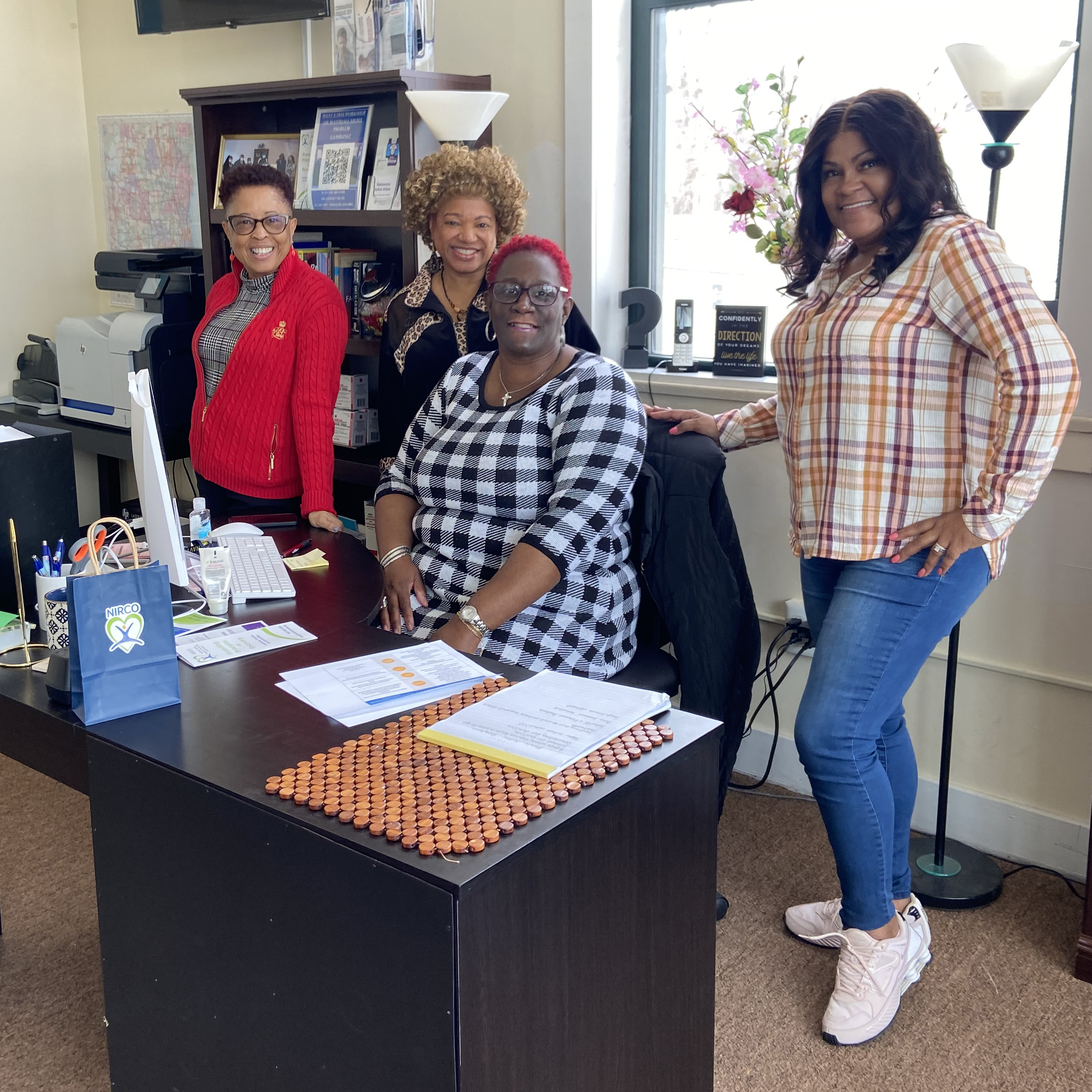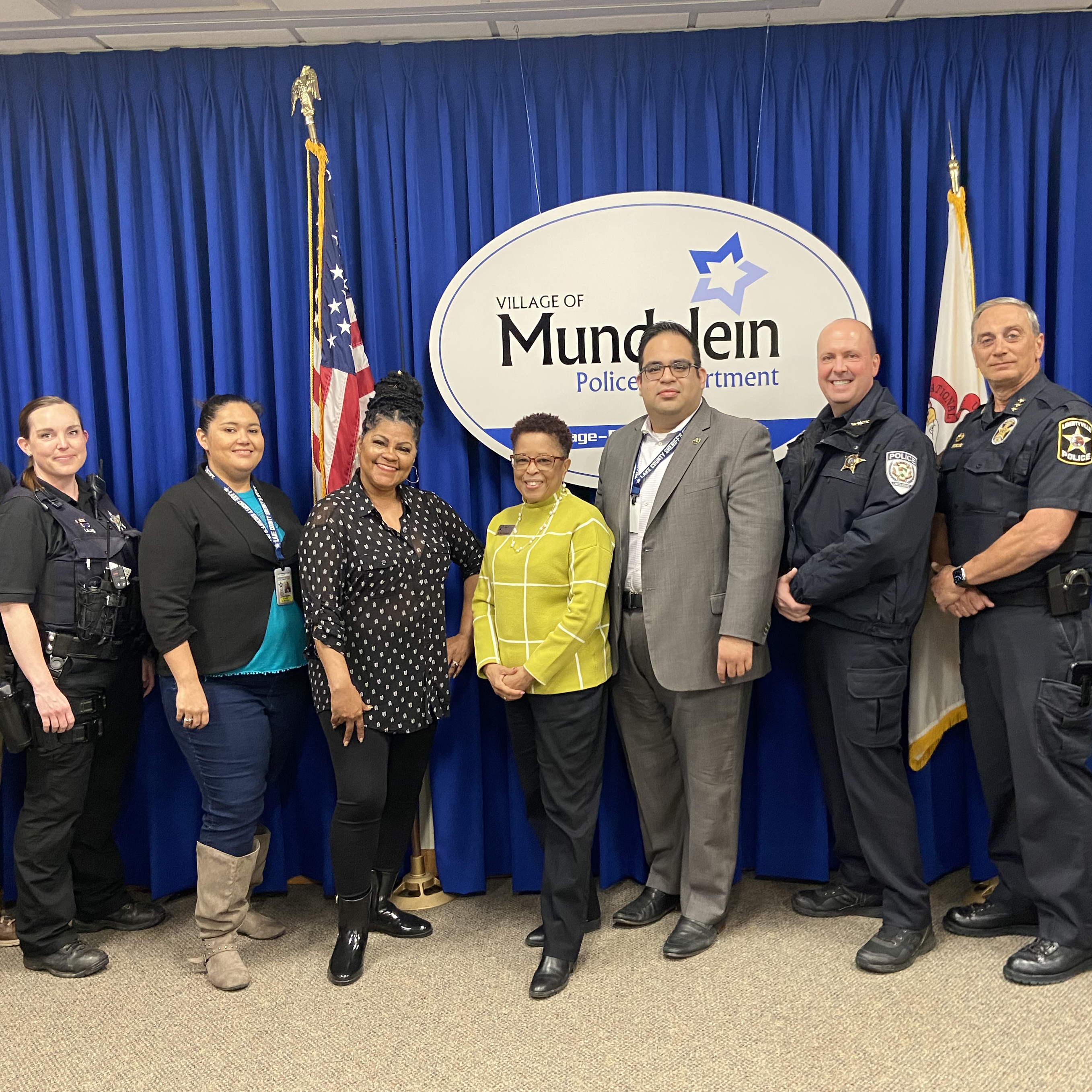For Mary Roberson, NIRCO Substance Misuse Work Never Finished
In retirement, Mary Roberson, EdD, has found time to "put in the work."
“I get a lot of joy from it,” she says. “When I retired from Nicasa Behavioral Health Services, I found myself pregnant with this idea that I kept trying to birth through other organizations. Finally, a friend encouraged me to make the process my own.”
In November 2019, Dr. Roberson’s nonprofit, the Northern Illinois Recovery Community Organization (NIRCO), was born. Today, you can often find Dr. Roberson in her office at the corner of "hope and opportunity”
A nationally recognized organization supported by Faces and Voices of Recovery, NIRCO’s mission is to promote recovery principles for individuals and families to strengthen recovery advocacy, peer-to-peer engagement, and community collaboration. The nonprofit is based in downtown Waukegan and is guided by four pillars: recovery-support services, recovery education, recovery advocacy, and the recovery-oriented system of care.
“I've done a lot of work throughout my career with behavioral health in the veterans’ population and also with individuals who have been impacted by substance-use disorder, mental health issues, and homelessness,” says Dr. Roberson. “Part of my advocacy work is in helping to reduce the stigma of substance-use disorder and mental health issues by putting a face and a voice to recovery.

This work allows communities and community-based organizations to know that people do recover to the point where they are in healthy situations and are productive members of society. ”
“This work allows communities and community-based organizations to know that people do recover to the point where they are in healthy situations and are productive members of society.”
Dr. Roberson very clearly recalls the day more than 20 years ago when she witnessed a keynote speaker openly talk about their recovery.
“It was this huge national conference on Michigan Avenue, and everyone’s in the room, and this woman gets on stage and says ‘Hi, my name is Susie and I am a person in long-term recovery, and what that means is I have been substance free for the past 15 years’ ” says Roberson. “And I'm sitting at the table with another colleague who I know is in recovery and we looked at each other, and say ‘did you hear what she just said? She just admitted in front of all these people that she's in recovery.’ That was a game changer for me.”
In the decade preceding that conference, Dr. Roberson kept private her own recovery journey.
“Throughout my professional career, for the better part of 29 years, I wouldn't talk about my personal recovery, because of the stigma, and because I was doing this work in social services and behavioral health,” says Dr. Roberson, who will be celebrating 30 years of recovery in July. “The reality is that talking about it has given me a fulfillment that I never thought possible.”
Dr. Roberson was born and raised in Chicago and today lives in Beach Park with her husband, Jeff. She migrated to Lake County to distance herself from the social ills that entrapped her in West Garfield Park in the 1970s and ’80s, and to utilize some of her U.S. Veteran’s benefits. Roberson served in the Navy, enlisting on September 3, 1973, and remains part of the Lake County Veterans and Family Services Foundation.
Part of my advocacy work is in helping to reduce the stigma of substance-use disorder and mental health issues by putting a face and a voice to recovery.”

“Waukegan is a city with one of the highest rates of substance-use crime and so we’ve positioned NIRCO in the heart of the community to show that we are putting in the work,” Dr. Roberson says.
In addition to recovery support, NIRCO also works to combat stigma surrounding substance abuse and recovery.
“Substance-use disorder has had a really bad reputation for so many years, in part because of behaviors associated with it, like crime and domestic violence,” says Dr.Roberson. “I’m here to say that language matters. We know that it is hard for individuals to change their mindset about individuals and families and communities that have been impacted by substance-use disorder, mental health issues, and homelessness, but people should understand that substance misuse is a brain disorder, not a choice.”
In the years since founding NIRCO, the organization has received support from federal partners, the state, and Northwestern University Feinberg School of Medicine.
In 2021, the Alliance for Research in Chicagoland Communities (ARCC) facilitated a partnership between Maryann Mason, PhD, associate professor of Emergency Medicine, and Roberson as part of a community collaboration seed grant project that sought to address and dismantle health-related barriers for persons of color in recovery from substance misuse.
“After speaking and meeting in person with Dr. Mason, our interest for the subject matter aligned and we began our work together,” Dr. Roberson says. “Our work in the opioid overdose arena intersected and our work to highlight communities of color was a natural fit.”
During interviews, these individuals revealed a perceived lack of patience from healthcare providers and a lack of knowledge and experience in navigating the healthcare system as barriers. Most individuals also reported having diabetes, hypertension, and heart disease.
“We’ve identified three approaches that might help people of color in recovery better access and manage good healthcare for their chronic conditions,” Dr. Mason says. “These are based on ideas for interventions that connect people to healthcare providers and systems but also educate healthcare providers and systems about the lived experience of persons of color who are in recovery.”
In addition to health literacy work, which Dr. Roberson believes researchers and healthcare providers must play a critical role in, NIRCO continues to investigate the consequences of health disparities in communities of color.
“Seven years ago, I began freely talking about my recovery, because one of the things I decided was that I've already laid my foundation for credibility and integrity,” Dr. Roberson says. “Talking about my recovery won't take from that, and now I get to empower others to make better choices. The work is never done. Let’s make recovery a nationwide epidemic.”
Written by Roger Anderson




